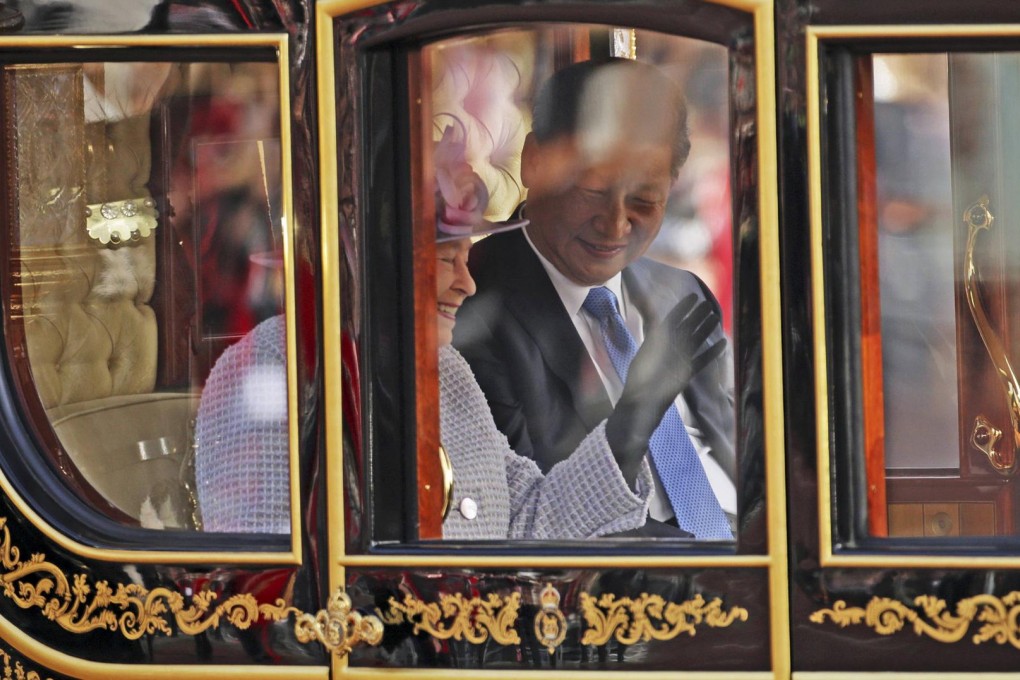New | A royal welcome for China's Xi Jinping as he brings US$46 billion in deals to Britain
Queen Elizabeth presents Chinese leader with collection of Shakespeare's sonnets as both nations usher in 'golden era' in Sino-British ties

Chinese President Xi Jinping's first full day in London began with a state welcome as he embarked on his four-day stay in Britain, during which more than US$46 billion of deals are expected to be signed.
Xi and his wife, Peng Liyuan , exchanged gifts with Queen Elizabeth. The queen gave Xi a collection of Shakespeare's sonnets and Peng a pair of Royal Crown Derby candlesticks, while Xi gave the queen two of his wife's music albums, British media reported. Peng is a popular folk singer in China.
READ MORE: Chinese president met with pomp and protest in Britain: the latest updates on the first full day of Xi Jinping’s UK state visit
Hailed by both sides as the start of a "golden era" in Sino-British relations, the first state visit by a Chinese president to Britain in a decade comes as London eagerly seeks to cement stronger ties with the world's second-largest economy.
Xi was given an elaborate red-carpet welcome with a 41-gun salute at the House Guards Parade yesterday, greeted by the queen, her husband Prince Philip, and Prime Minister David Cameron.
Supporters and protesters crammed the streets outside, chanting and waving banners.